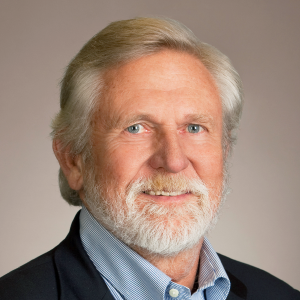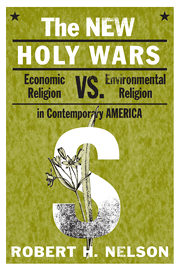It says in the Bible that the poor are the blessed of the earth, and the rich are not likely to be found in the Kingdom of Heaven. Are The Forbes Four Hundred headed for damnation? Can you be a good businessman—or woman—and a good Christian at the same time?
These kinds of subjects were on the minds of the members of the Association of Christian Economists as they assembled in Chicago not long ago. God and damnation? What do such subjects have to do with demand curves and resource optimization? Strange as it may seem today, economics was once very much concerned with religion and morality. The founder of the American Economic Association in 1885 was Richard Ely, a prominent member of the Protestant social gospel movement.
Ely believed the mission of the church was to improve the economic circumstances of human existence as a prerequisite to creating a more moral society. Economics would provide the scientific understanding needed to achieve that commendable goal. A century ago Ely helped lay the foundation for the American progressive movement, which aimed at using reason to improve the lot of the poor and make it possible for everyone to live a fulfilling life.
The progressive gospel led to the American welfare state. As time passed the movement became modern-day American liberalism, which tended to regard religious faith as an anachronism. In his 1930 essay “Economic Possibilities for our Grandchildren,” John Maynard Keynes predicted that the application of rational thinking to economic problems would eliminate economic scarcity and free human beings to concentrate on more serious things. There was no God in Keynes’ paradise, just ever-growing material well-being leading to a secular heaven on earth.
We no longer believe in the power of reason and material progress as before. At the end of the 20th century we have seen that general affluence has not eliminated human unhappiness. Higher wages and better education and nutrition have not ended crime or drugs or drunkenness. We have learned that these pathologies are not necessarily the consequences of low incomes and lack of economic opportunity.
Such matters were very much in the minds of economists like Donald Hay of Oxford and Judith Dean of Johns Hopkins when they gathered in Chicago in an effort to put God back into economics. But they concluded that putting Him back won’t be easy. Christianity and Judaism may have shaped the Western world, but no leading economics journal is likely to publish an article explicitly grounded in religious teachings. Thus the economists assembled in Chicago spoke of experiencing a deep tension in their professional lives. Unless they keep their economics and their religion in separate compartments, they are likely to be denied tenure.
It is acceptable today to be a Marxist, feminist, environmentalist, progressive or other quasireligious brand of economist, but not a Judeo-Christian economist.
Some Christian economists have abandoned secular universities, teaching at Christian institutions such as Calvin College in Michigan or Wheaton College in Illinois. Others have accepted that the price of a full mainstream status in the economics profession is a degree of schizophrenia.
Most of the members of the Association of Christian Economists saw no basic conflict between their religious beliefs and a free market. They didn’t go so far as the 16th-century Protestant theologian John Calvin, who said that success in a calling—business included—is a sign of divine favor. But most agreed that the market plays a beneficial role. The market teaches hard work, foresight and honest dealings. It produces the material goods necessary to allow people to do the higher things in life. In Heaven, they agreed, there would be no inequality. On earth it is an inevitable consequence of original sin.
So piling up wealth is not incompatible with a moral life—but don’t expect your portfolio to impress Saint Peter.












